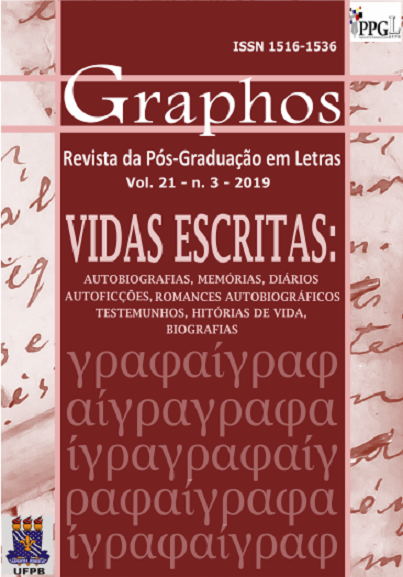Logic for the senses: interview with Fernando Bonassi
Keywords:
Fernando Bonassi, Children and Youth Literature, Contemporaneity, InterviewAbstract
Born in São Paulo (1962), Fernando Bonassi stands out as an internationally awarded short story writer, screenwriter, playwright, novelist and filmmaker. Many of his works are published in Brazilian and foreign anthologies. As a literary author and film producer, recognized by the critics for the corrosive and caustic power of his artistic language, Bonassi shows special communicative skills to fictionally express faces of the contemporary world marked by consumerism, violence, and instantaneities. His books 100 stories taken from the street (Editora Scritta, 1996) and Passaporte (Editora Cosac & Naify, 2001) can certainly be among the best collections of micronarratives published in Brazil in recent decades. In the latter, for example, with the passport as metonymy, multiple narrators undertake a flânerie across different parts of the world, as if traversing mazes of a single city with imaginary boundaries, which only changes its name. What is represented in these brief chronicles of everyday life, it is the human in its striking reality of utopian derision. For the movies, Bonassi produced scripts for Os Matadores, Carandiru, Garotas do ABC, Cazuza, Através da Janela, Castelo Rá Tim Bum. He also stands out for the theatrical productions of Preso entre ferragens and Três cigarros e a Última Lasanha, and wrote and directed the monologue O incrível menino na fotografia - among other texts. His productions for children and youth includes the following: Uma carta para Deus (Formato, 1997), O pequeno fascista (Cosac Naify, 2005), Diário de guerra de São Paulo (Publifolha, 2007) and Montanha-russa (Cosac Naify, 2008). In the following interview, the author talks about his works aimed at children and young people: his sensitivity and attention to the contemporaneity, and the crudity of social relations that affects childhood and youth. That crudity reverberates in Bonassi's aesthetics, bringing intense provocations to the reader, offering a kind of potent logic for comprehension of meaning.
Downloads
References
BONASSI, Fernando. Montanha-russa. São Paulo: Cosac Naify, 2008.
MAFFESOLI, Michel. Elogio da razão sensível. Petrópolis: Vozes, 1998.







